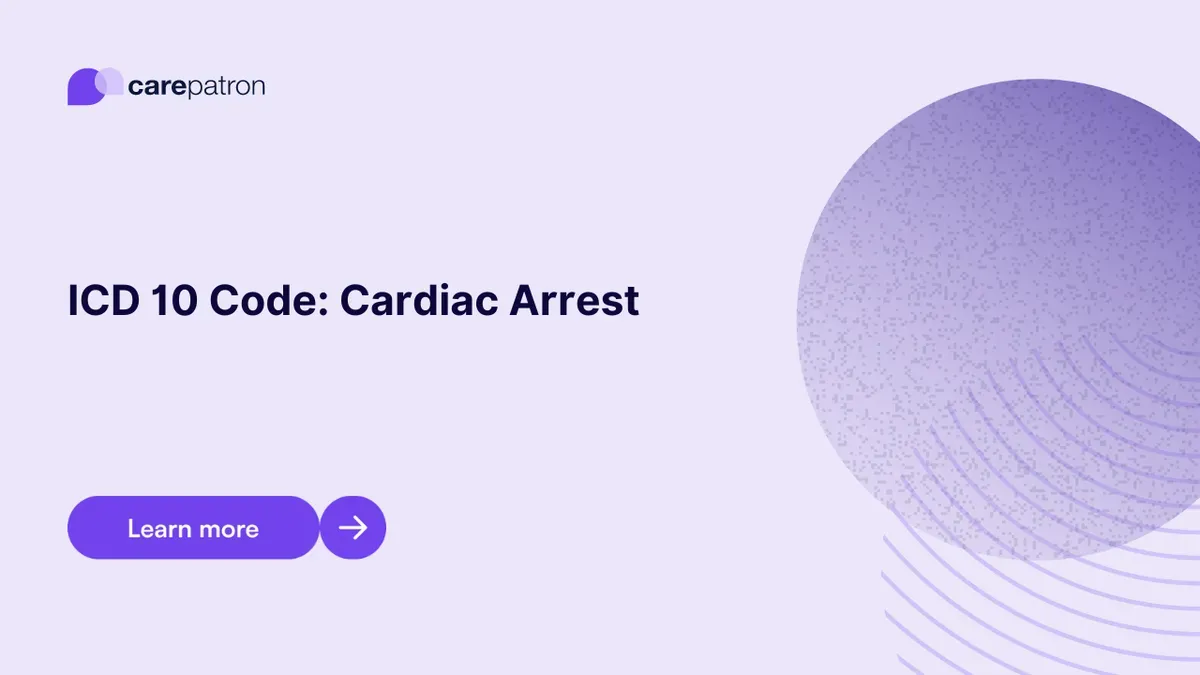
Cardiac Arrest ICD-10-CM Codes
Explore the key ICD-10 codes for cardiac arrest. Understand their applications for accurate diagnosis and billing.
Use Code
Commonly asked questions
A cardiac arrest ICD code is used when a patient experiences a sudden cessation of heart function. The specific code used depends on the cause and circumstances of the cardiac arrest.
Common treatments include immediate cardiopulmonary resuscitation (CPR), defibrillation, medications like epinephrine or amiodarone, and, potentially, post-arrest care in a hospital setting.
A diagnosis code for cardiac arrest indicates that the patient has experienced a sudden cessation of heart function. The code provides further information about the cause and specifics of the cardiac arrest.
EHR and practice management software
Get started for free
*No credit card required
Free
$0/usd
Unlimited clients
Telehealth
1GB of storage
Client portal text
Automated billing and online payments
